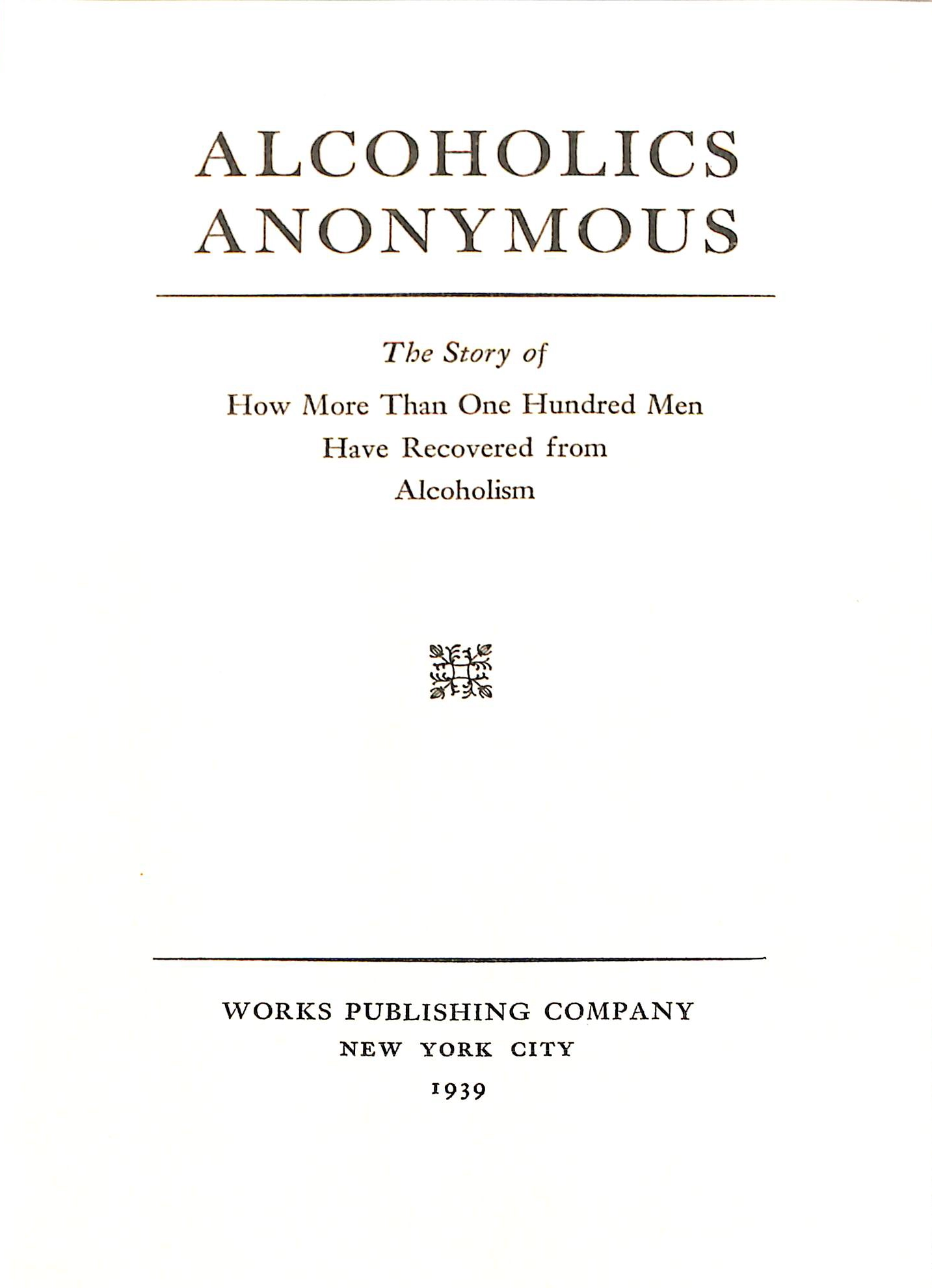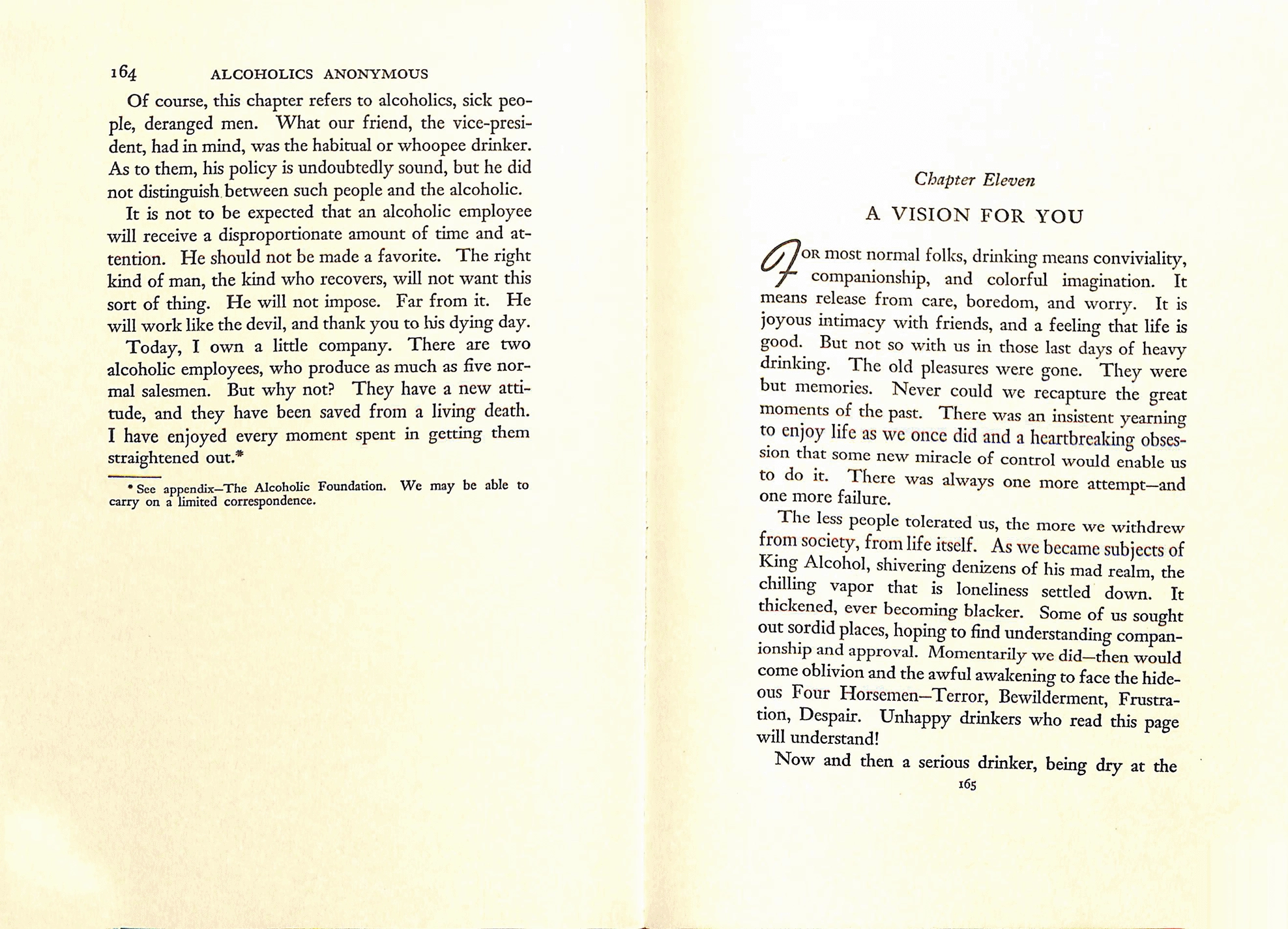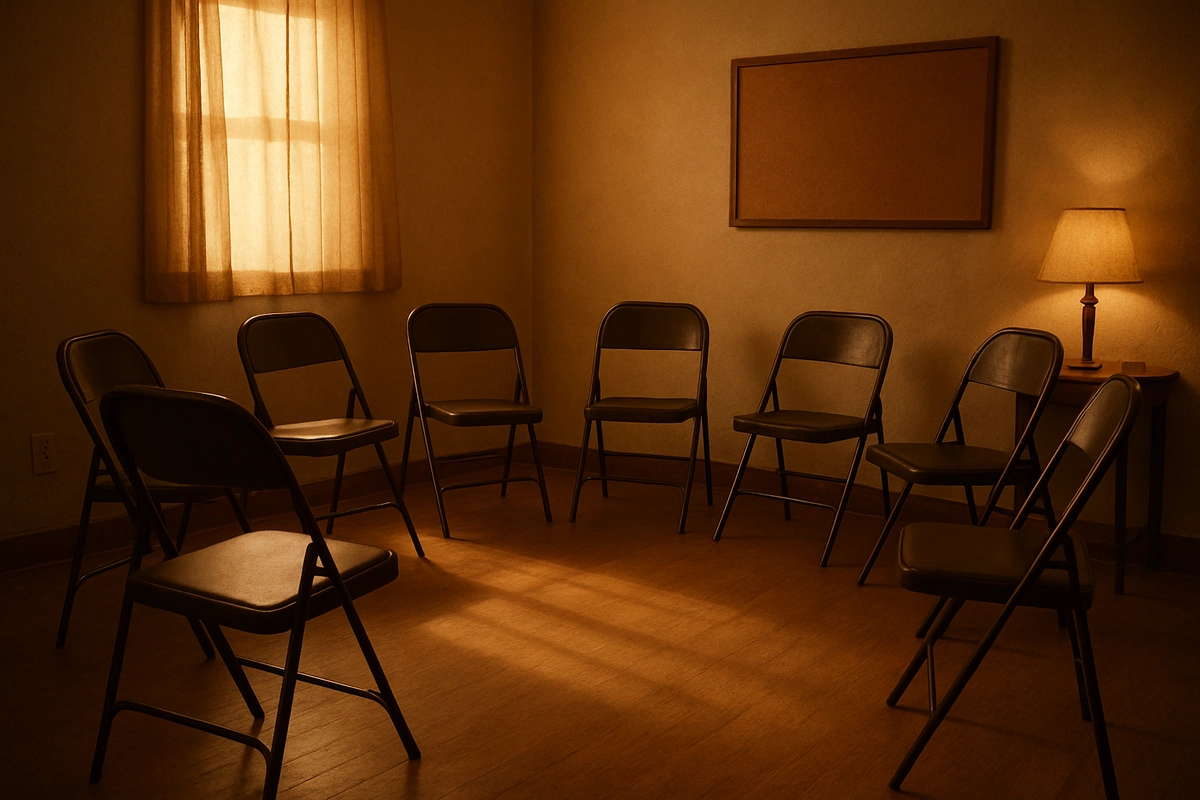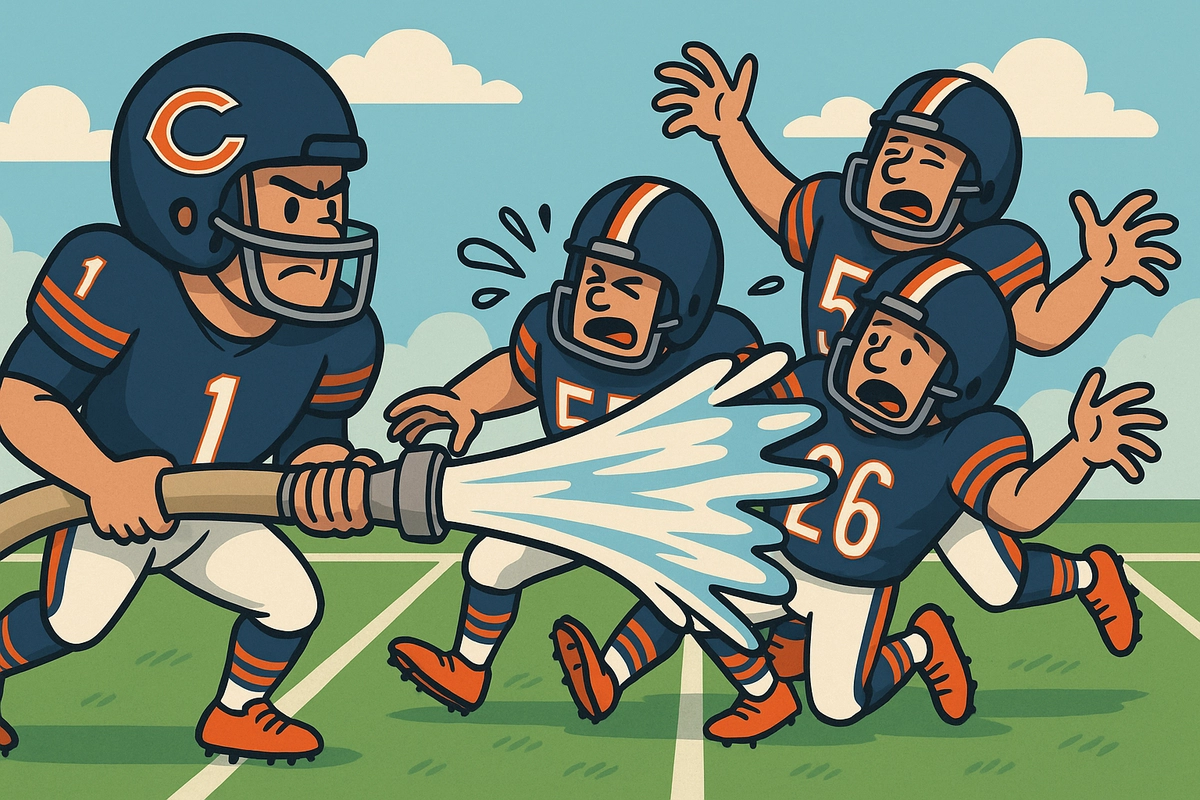This article is the first in a series of reflections on the Twelve Steps from a virtue- and philosophy-based recovery lens. Essentially these are the means I used to embrace the program of Alcoholics Anonymous despite misgivings I had about religious beliefs, doctrine, and some traditions within the program.
As I covered in Welcome to The Open Path Project, the program felt almost cult-like to me at my first meeting and I was struggling to connect with the program and people there early on in the meeting. Then, when we proceeded to my First Step, everything changed for me in every bit of a revelatory way. I didn’t see the bright white light that Bill W. described in his moment, but the change within me was palpable. The stories of “experience, strength, and hope” had an immediate impact on me. Step One changed my life and is the reason I am sober today.
My History with Religion & Philosophy
I didn’t come to religion until I was 11 years old after the passing of my grandmother which led my family to start going to church. My great grandfather and namesake was a Methodist minister in rural Tennessee and my grandmother left me with many memories and powerful practices rooted in faith before she died. I was also blessed with the mentorship of a wonderful pastor in the United Methodist Church who encouraged my exploration of faith. All of my friends and activities (and crushes) as a young man were centered on Methodist Youth Fellowship (MYF) which was a significant portion of my life up until I finished high school. I am not someone, like many, who came to the program with a bad experience with religion; quite the opposite, I’ve always been seeking and that has included various points where I studied and practiced Islam as well as Quakerism.
For several years before I got sober I was exploring philosophy, particularly Stoicism. I was also a Tai Chi instructor which led me to explore Taoism and, to a lesser degree, Confucianism. As an ardent student of these beliefs Step One struck me hard because the beginning of my journey to recovery had been in front of my face the entire time, I just didn’t see it. Stoicism in particular is rooted in concepts of acceptance of what is within one’s control and to let go of things that are beyond one’s control. In fact, it makes up much of the first book of The Enchiridion (The Manual) by Epictetus, one of the central philosophers of Stoic thought.
Now the things within our power are by nature free, unrestricted, unhindered; but those beyond our power are weak, dependent, restricted, alien. – Book I of The Manual
Revelations at My First Meeting
The concept of recognizing that which is within our power to control and that which is not is foundational to Stoicism and thus foundational to my own beliefs when I first walked through the doors to my first meeting. So, when I heard the First Step for the first time, it was very familiar.
We admitted we were powerless over alcohol - that our lives had become unmanageable. – Chapter 5 - “How It Works” - Alcoholics Anonymous
But it was not until the others in the room started sharing their stories that the veil was lifted for me for the first time and the message of acceptance found in the First Step began to change my life as I listened. Any misgivings I had from the readings heavy in Christian doctrine to the cult-like feel of the group responses evaporated immediately. As I was a blackout drunk I don’t remember my last drink, but in that moment, I became sober.
A.A. and Tradition
From that point I was attending meetings three or four times a week, got a sponsor, and started working the steps. It didn’t take long for me to start to have issues with some of the traditions of the program though, particularly with my sponsor. After a rather heated discussion on a drive back to his home I ended that sponsorship and haven’t had a traditional sponsor since.
One would think that after encountering issues with the program within the first three steps and leaving my first sponsor that a relapse would be where I wound up. Instead I’ve maintained my sobriety ever since, worked all of the steps, and chaired meetings rather early on. There are several reasons the program has worked for me despite my rather unorthodox approach to it but in my mind the power of the First Step is at the top of the list. Despite having issues with all of the steps in some form, even the first, I’ve stuck with the program. Why? Well, because it works.
My unorthodox approach and shares (you don’t often find someone who says they have an issue with a reading, I have them pretty consistently) have definitely led to friction with other members. A.A. is heavily steeped in tradition and three of those traditions are to sit down, shut up, and do as you're told, so my critiques of readings and where they fell short weren’t always warmly received. Despite that, I stuck with it. Again, it works.
The next natural question would be why does it work for me and why do I stay despite these internal conflicts? My belief is the Steps are a product of their time and, in large part, have stood the test of time. There’s little doubt A.A. has changed how alcoholism is perceived as, at the time A.A. was formed alcoholics were largely considered unredeemable lost causes. Despite this long record of success society has changed in many ways since A.A.’s founding and, as an organization rooted in tradition, it’s had difficulty keeping up. Regular church attendance has declined precipitously since the 1930s so it is little surprise that today’s avenues to treatment are dominated by both public and private for-profit secular therapeutic programs for the treatment of alcoholism.
One need not look further than the first edition of the Big Book to see how times have changed. Women aren’t mentioned at all as alcoholics and, indeed, the title page itself states how it is “The Story of How More Than One Hundred Men Have Recovered from Alcoholism.” It’s since been modified to include women as well.

The New York meeting wanted to turn away the first black men who tried to attend a meeting. After Bill W.’s pleading with them to “just observe” (from the back of the room, of course) they were they allowed to stay.
The “first 164 pages” are revered within A.A. and are considered sacrosanct despite the passage of time. Questioning parts of them is certain to lead to almost immediate condemnation from other members. Even when the General Service Office (the GSO, A.A.’s only form of management) started looking into a companion to the Big Book that would update some of the archaic language (i.e. “What an order!”) to something more modern it was met with incredulity, pilloried as A.A. for Dummies, and made the target of petitions and organized opposition campaigns.

This leads to my long-held belief about the traditional attitude of a member of A.A.: they're sick and tired of the way things are and sick and tired of one thing the most–when anything changes. Couple that with the fact that I often feel like one of the young people in the room despite being 53-years-old and you have a movement that's facing significant challenges.
My belief is what is needed in A.A. is not a radical change or departure from the Steps or tradition, but more openness to ideas that would have been very foreign when A.A. was founded. Given the opposition and resistance to changing the A.A. preamble and the introduction of the Plain Language Big Book, I’m not certain my ideas would gain much traction working within A.A. So, here we find ourselves with The Open Path Project.
Despite this attachment to tradition, A.A. is rather unique in its commitment to decentralization with virtually no sources of governance or authority. Even the GSO gently steers A.A. in the direction it would like it to go by means of controlling the publishing rights to its materials. Indeed, A.A. prides itself on having only one requirement for membership, “a desire to stop drinking.”
With The Open Path Project I hope to work within the structure of A.A. to offer a more modern approach to the program and the Steps specifically. Interestingly enough, this modern approach is rooted in ancient philosophies and beliefs. So, in many ways, I’m seeking to augment something modern with something timeless.
Next: The Origins of Step One
Tomorrow, in Part II, we explore how the First Step took shape—not in a vacuum, but from the Oxford Group’s radical theology of surrender. The roots might surprise you. Subscribe to our free newsletter to get it as soon as it drops!






Comments